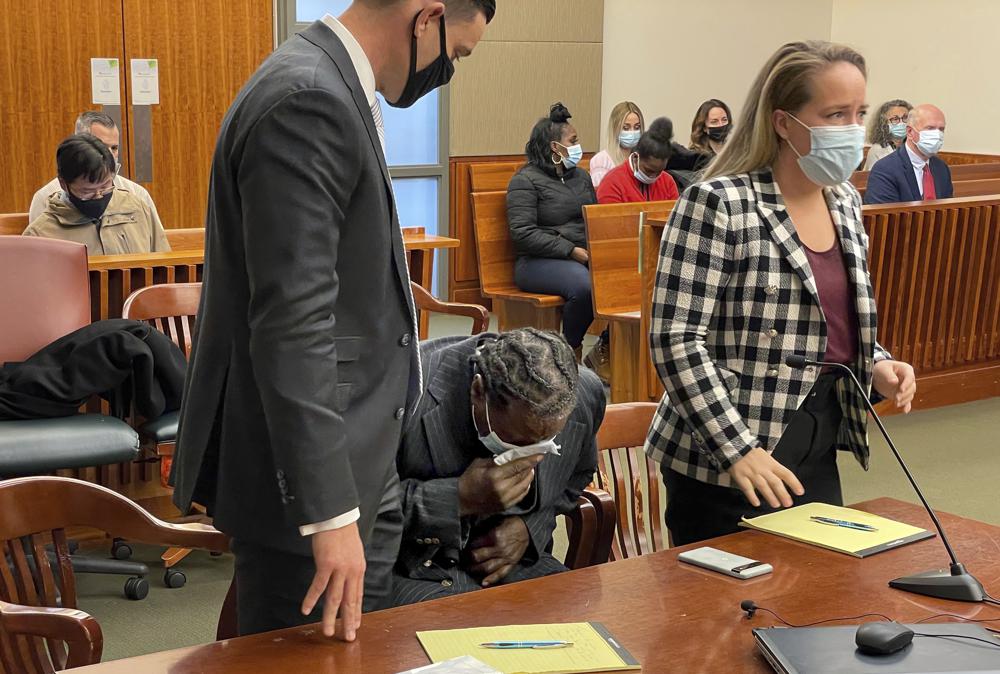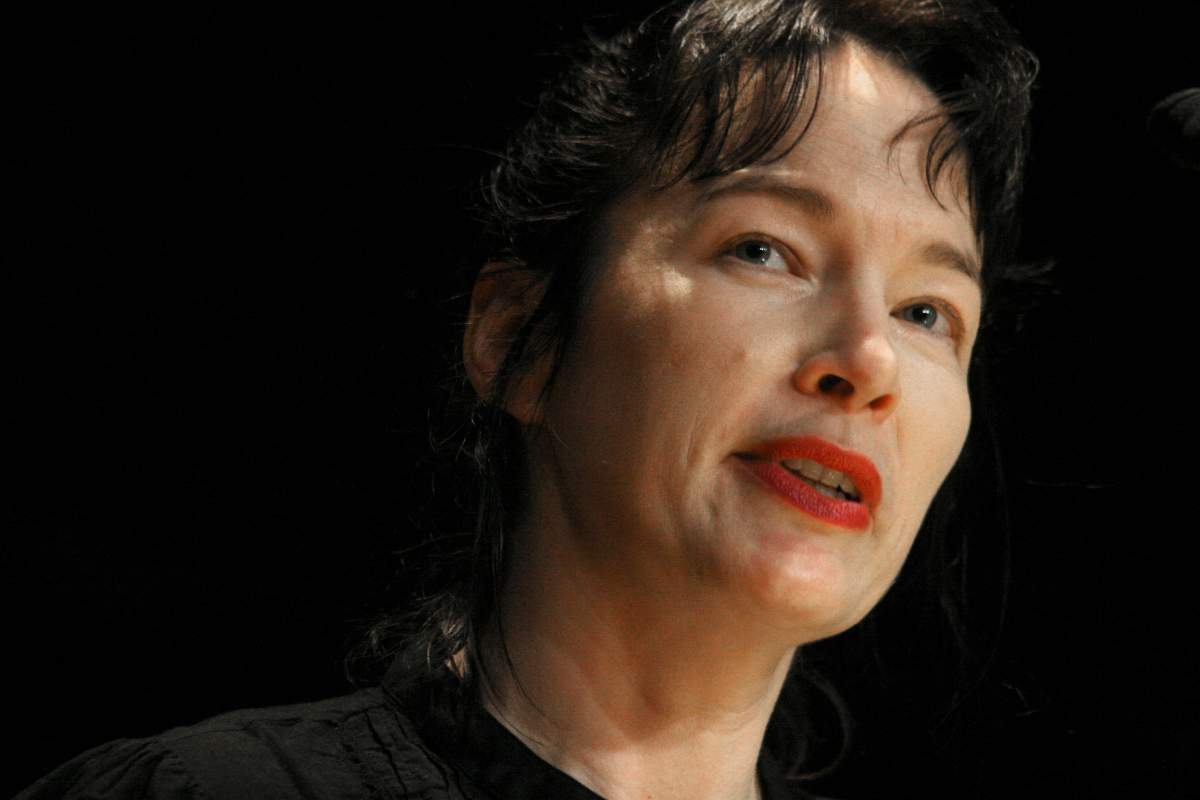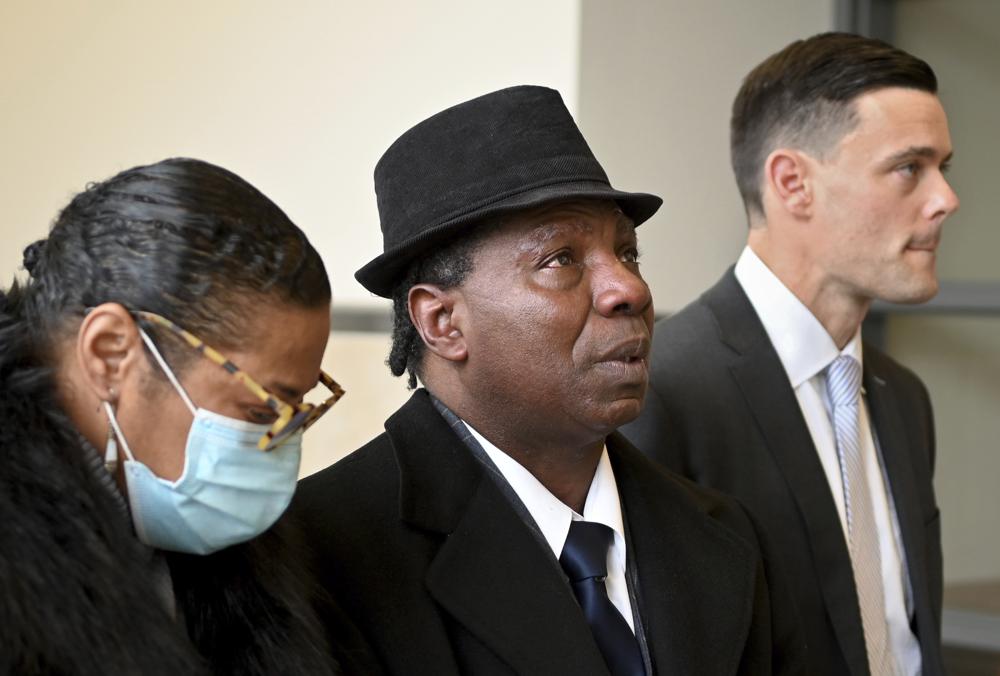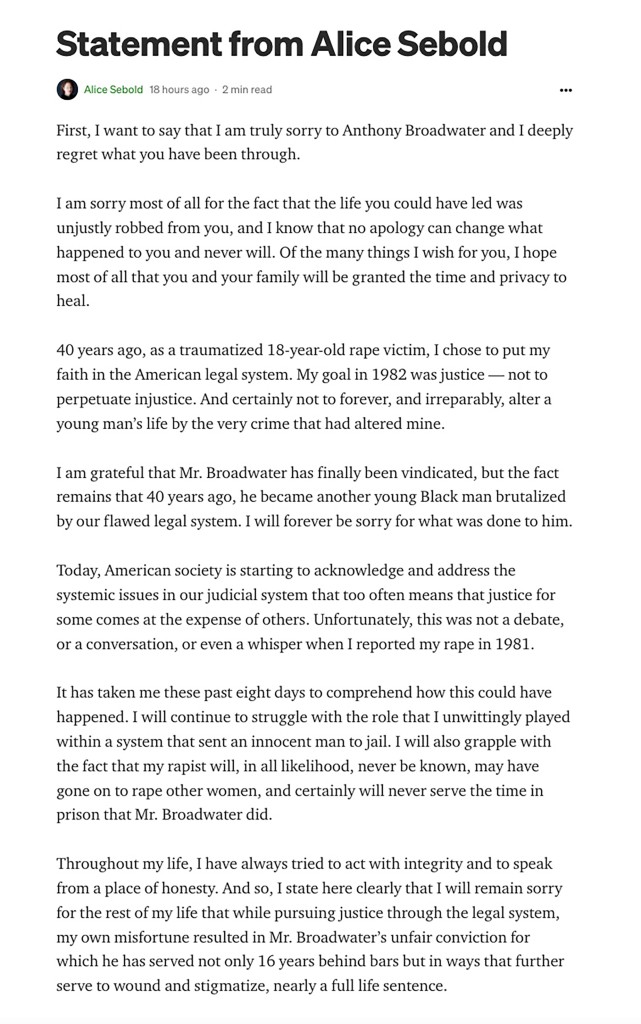A man once convicted of raping American novelist Alice Sebold has been cleared of any wrongdoing after a film producer crafting a movie about the case helped to exonerate him.

Anthony Broadwater spent 16 years in prison after a 1982 trial found him guilty of raping Sebold while she was an 18-year-old student at Syracuse University.
Sebold went on to tell the story in her 1999 memoir, Lucky.
That memoir was in the process of being adapted for film, but research for the movie led one producer to become skeptical of Broadwater’s guilt when the first draft of the film script differed so much from the book. It prompted Tim Mucciante to take a closer look at the circumstances that lead to Broadwater’s conviction.
“I started poking around and trying to figure out what really happened here,” Mucciante told The Associated Press on Tuesday.
Sebold, 58, wrote in Lucky of being raped in a tunnel as a first-year Syracuse student in 1981 and then spotting a Black man in the street months later that she was sure was her attacker.
“He was smiling as he approached. He recognized me. It was a stroll in the park to him; he had met an acquaintance on the street,” wrote Sebold, who is white. “‘Hey, girl,’ he said. ‘Don’t I know you from somewhere?'”
She said she didn’t respond: “I looked directly at him. Knew his face had been the face over me in the tunnel.”
Sebold went to police, but didn’t know the man’s name. Police were unable to locate him nearby, but one investigator suggested to Sebold that it must have been Broadwater, who had recently been seen in the area.
However, when Broadwater was arrested, Sebold failed to identify him in a police lineup, instead choosing another man as her attacker.
Nonetheless, Broadwater was sent to trial, and convicted on what’s considered flimsy evidence by today’s standards; on the stand, Sebold identified him as her attacker, and an expert told the court they found microscopic hair analysis that linked Broadwater to the crime scene.

Get breaking National news
According to AP, that type of forensic analysis has been considered junk science for some time.
“Sprinkle some junk science onto a faulty identification, and it’s the perfect recipe for a wrongful conviction,” Broadwater’s lawyer, David Hammond, told the Syracuse Post-Standard.
Mucciante said that after dropping out of the project earlier this year he hired a private investigator, who put him in touch with Hammond, of Syracuse-based CDH Law, who brought in fellow defence lawyer Melissa Swartz, of Cambareri & Brenneck.
Hammond and Swartz credited Onondaga County District Attorney William Fitzpatrick for taking an interest in the case and understanding that scientific advances have cast doubt on the use of hair analysis, the only type of forensic evidence that was produced at Broadwater’s trial to link him to Sebold’s rape.
Broadwater stayed on New York’s sex offender registry for more than two decades after he was released from prison in 1999, and spent years working in sanitation after the conviction took a serious toll on his job prospects. He also told AP that his relationships with family and friends were severely tarnished.
Fitzpatrick delivered the news of exoneration to Broadwater in court on Monday, and the formerly accused sobbed and shook with relief, writes BBC News.
“I’m not going to sully this proceeding by saying, ‘I’m sorry.’ That doesn’t cut it,” said Fitzpatrick while delivering the news, reports the Post-Standard. “This should never have happened.”
Meanwhile, Sebold has apologized to Broadwater.
“I am sorry most of all for the fact that the life you could have led was unjustly robbed from you, and I know that no apology can change what happened to you and never will. Of the many things I wish for you, I hope most of all that you and your family will be granted the time and privacy to heal,” she wrote in a statement on Medium.
“My goal in 1982 was justice — not to perpetuate injustice. And certainly not to forever, and irreparably, alter a young man’s life by the very crime that had altered mine,” the author continued.
“I am grateful that Mr. Broadwater has finally been vindicated, but the fact remains that 40 years ago, he became another young Black man brutalized by our flawed legal system. I will forever be sorry for what was done to him.”
Publisher Simon and Schuster shared Wednesday that it would no longer distribute Sebold’s memoir.
Lucky launched Sebold’s writing career with sales of the book surpassing one million. She went on to write the novel The Lovely Bones, which was turned into an Oscar-nominated film by Peter Jackson.
In a statement to Entertainment Weekly, issued through his lawyers, Broadwater said: “I’m relieved that she has apologized. It must have taken a lot of courage for her to do that. It’s still painful to me because I was wrongfully convicted, but this will help me in my process to come to peace with what happened.”
If you think someone is being abused, here is some information on supporting them and additional information on safety planning. If you think someone is abusive to their partner, here is a list of resources to help. Are you experiencing abuse? Here’s how to get help
















Comments